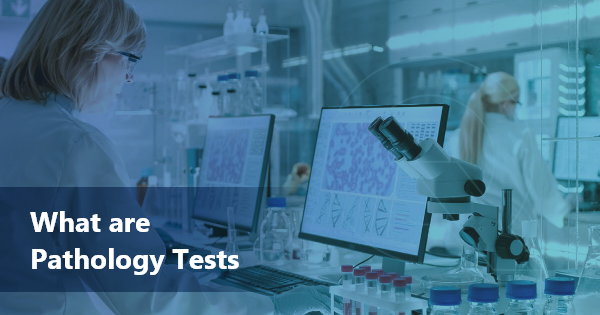In healthcare, there’s a vital but sometimes overlooked part called pathology. Pathology is all about studying diseases, and it’s crucial for understanding, diagnosing, and treating different health issues. Let’s explore how pathology helps in healthcare in simple terms.
Contents
1. Finding Out What’s Wrong: The First Step to Getting Better
Pathology is like a detective, figuring out the secrets behind illnesses. Pathologists use tools like microscopes, molecular tests, and images to look at tissues, blood, and fluids in our bodies. They identify what diseases are there and help doctors plan the best treatments.
2. Checking if Treatments are Working
After figuring out the problem, pathology helps in keeping an eye on how diseases are changing and if treatments are doing their job. By looking at things like biomarkers and cell changes, pathologists give important information on whether a treatment is working well. This helps doctors adjust plans to make sure patients get the best care.
3. Stopping Problems Before They Start
Pathology isn’t just about fixing problems – it’s also about preventing them. Pathologists help by finding risks and possible health issues before we even feel sick. Tests like Pap smears, mammograms, and blood tests catch issues early, so doctors can act before things get worse. This helps keep everyone healthier in the long run.
4. Personalized Medicine: Treatments Made Just for You
Thanks to advances in pathology, especially in molecular pathology, we can now have treatments that fit us perfectly. Pathologists study our genes and molecules to find specific changes that affect how diseases grow. This info lets doctors create treatments that match each person’s unique needs, making them work better.
5. Helping Scientists Discover New Things
Pathology isn’t just about solving individual cases – it also drives medical research. By studying samples from our bodies, pathologists provide important details for scientists. This helps them figure out how diseases work and develop new medicines and tools, pushing healthcare forward.
In the end, pathology is like a hero in healthcare, connecting the dots in diagnosing, treating, preventing, and researching diseases. As technology gets better, pathology keeps evolving, making sure it stays a crucial part of modern healthcare.
Frequently asked Questions
Q1: What is the role of a pathologist in healthcare?
A1: A pathologist in healthcare plays a critical role in diagnosing diseases by examining tissues, blood, and bodily fluids. They contribute to treatment decisions, monitor treatment effectiveness, and support preventive measures through the identification of risk factors, making them indispensable for patient care and public health.
Q2: Why is pathology important in the healthcare sector?
A2:Pathology is vital in healthcare as it enables accurate disease diagnosis, guides effective treatment strategies, and facilitates proactive measures for disease prevention. By unraveling the intricacies of illnesses, pathologists contribute significantly to improving patient outcomes and overall public health.
Q3: What is the role of pathology services?
A3: Pathology services play a crucial role in healthcare by providing accurate disease diagnoses, monitoring treatment efficacy, and identifying potential health risks through screening and preventive measures. These services contribute essential information for personalized medicine, medical research, and maintaining public health surveillance.


![Blood Test for Hair Loss [Male/Female] Blood Test for Hair Loss](https://oncquest-blog.s3.ap-south-1.amazonaws.com/blog/wp-content/uploads/2023/12/12044200/Blood-Test-for-Hair-Loss.webp)


